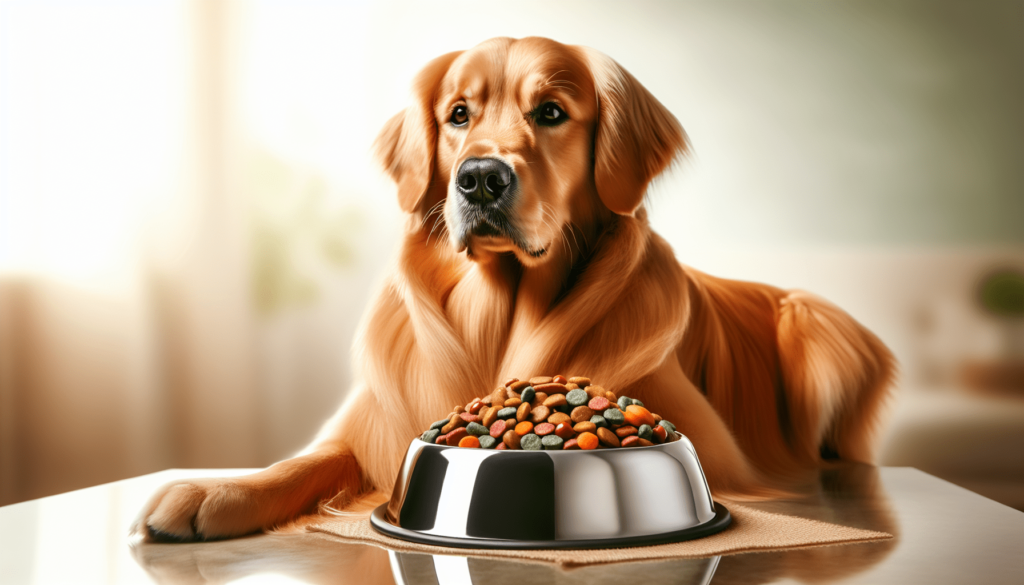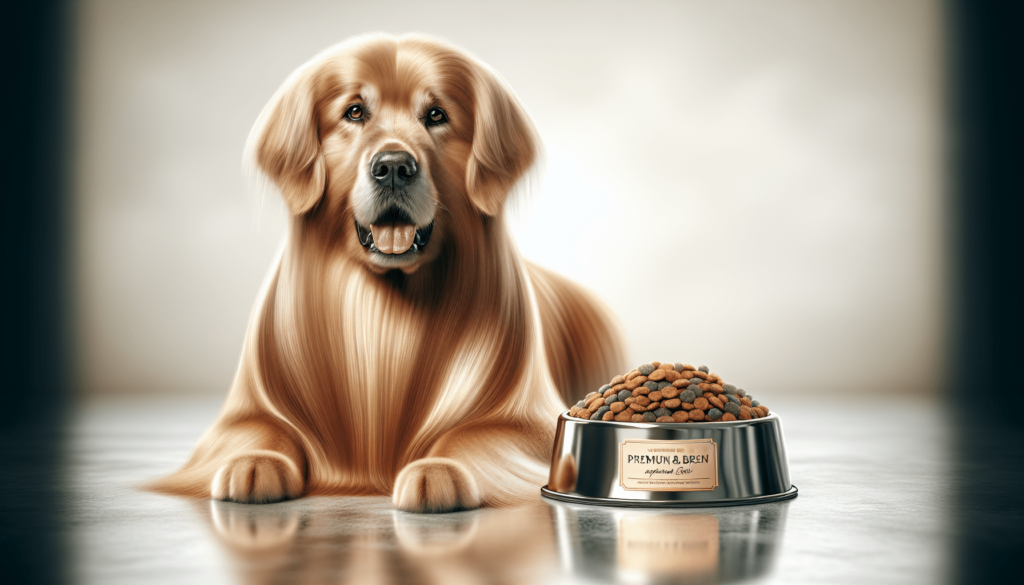What makes a dog food the best choice for skin and coat health?
Taking care of a dog’s skin and coat is not only about making them look shiny and beautiful but also about ensuring their overall health and well-being. A healthy coat is often a reflection of what’s going on with a dog’s diet and lifestyle. Have you ever wondered what specific dog foods can make a significant impact on skin and coat health?

The Importance of Skin and Coat Health
Skin and coat health are crucial indicators of a dog’s overall health. A vibrant, soft, and shiny coat doesn’t just make your dog look good; it often signals a balanced diet and proper care. Dogs, much like humans, need the right nutrients to maintain their skin and coat in good condition. Without them, they might suffer from dry skin, dull fur, and other health issues.
Understanding Your Dog’s Skin and Coat Needs
Dogs have different needs depending on their breed, age, size, and individual health conditions. For instance, a dog with allergies might benefit from a hypoallergenic diet, while an older dog might need more omega-3 fatty acids. Understanding what your dog requires is the first step in ensuring a healthy skin and coat.
Why Diet Matters for Skin and Coat Health
The skin is the body’s largest organ, and a dog’s coat protects it. Nourishing your dog with a diet rich in essential nutrients supports skin regeneration, reduces inflammation, and helps maintain that sought-after glossy appearance. But what nutrients should you focus on?
Essential Nutrients for Skin and Coat Health
Recognizing the vital nutrients that contribute to healthy skin and a shiny coat is key to making the best dietary choices for your dog. Let’s break these down and understand their importance.
Omega-3 and Omega-6 Fatty Acids
Omega-3 and Omega-6 fatty acids are two crucial components for maintaining healthy skin and fur. They help reduce inflammation, moisturize the skin, and promote a shiny, strong coat.
Protein
High-quality protein is essential for healthy skin and coat. Proteins supply amino acids, which are building blocks for tissue repair and growth. A diet lacking in protein often results in a dull coat and flaky skin.
Vitamins and Minerals
Key vitamins like Vitamin E and B vitamins, such as biotin, play a significant role in skin health. They help protect against oxidative damage and promote hair growth. Minerals like zinc also contribute by supporting skin and coat repair.
Antioxidants
Antioxidants combat oxidative stress, which can damage skin cells and fur. Ingredients rich in antioxidants help maintain healthy skin and prevent issues that can lead to a dull or unhealthy coat.

Identifying the Best Dog Foods for Skin and Coat Health
With an understanding of the essential nutrients for skin and coat health, you can look at some of the best dog foods available on the market. These foods are specifically formulated to meet the nutritional needs that promote healthy skin and a radiant coat.
Grain-Free vs. Grain-Containing
The debate between grain-free and grain-containing dog foods is ever-present. Some dogs are sensitive to grains, which can affect their skin and coat. However, others thrive with certain whole grains in their diet. It’s about finding what works best for your dog, often through trial and error or veterinary guidance.
All-Natural and Organic Options
Many dog owners prefer all-natural or organic foods, which tend to exclude artificial additives, preservatives, and by-products. These foods often use high-quality ingredients that contribute to better overall skin and coat health.
Specially Formulated Foods for Skin and Coat
Several brands offer specialized formulas aimed specifically at improving skin and coat health. These products are usually enhanced with additional omega fatty acids, vitamins, and minerals.
Recommended Dog Foods for Skin and Coat Health
Here’s a look at some dog foods that have been widely recognized for supporting skin and coat health.
Brands to Consider
Royal Canin Skin Care
Specially formulated for dogs with sensitive skin issues, this product is enriched with omega fatty acids and nutrients to support the skin’s barrier.Hill’s Science Diet Sensitive Stomach & Skin
This brand focuses on soothing sensitive skin and aiding digestion, ensuring a balanced diet for your dog’s needs. It’s known for using high-quality ingredients that bolster skin health.Blue Buffalo Life Protection Formula
With natural ingredients and no chicken or poultry by-products, Blue Buffalo offers an excellent choice for dogs needing extra vitamins and minerals for their skin and coats.
Specific Ingredients to Look For
When evaluating dog foods, look for ingredients like fish oil, flaxseed, and chicken fat as good sources of omega fatty acids. Also, check for protein sources such as chicken, lamb, or fish, which provide the necessary amino acids for skin repair and health.
Homemade Options
If you prefer preparing your dog’s meals, you can consider cooking with ingredients like salmon, sweet potatoes, and olive oil, which are naturally beneficial for skin and coat health. Homemade diets offer control over ingredients but should still be balanced and often require a veterinarian’s guidance.
Listening to What Your Dog’s Skin and Coat Tell You
Observing your dog’s skin and coat can provide insights into their health. If you notice signs like excessive shedding, dandruff, or itching, it may be time to consult your vet or consider adjusting their diet.
Routine Grooming
Regular grooming helps distribute natural oils throughout your dog’s coat, contributing to its overall health and shine. It’s also an excellent opportunity to spot any changes or issues in their skin and coat that might require attention.
Regular Check-ups
Routine veterinarian visits are essential to ensure your dog is in optimal health. Your vet can give specific recommendations tailored to your pet’s unique needs, helping you choose the best food for their skin and coat health.
FAQs
What common ingredients can cause skin allergies in dogs?
Common allergens include wheat, soy, and certain proteins like beef or chicken. Observing your dog’s reactions to food and consulting with a vet can help identify specific allergens.
How long does it take to see improvements in my dog’s coat after changing their diet?
While results can vary, you might start to see improvements within a few weeks. However, significant changes in coat health can take several months.
Can supplements help improve my dog’s skin and coat health?
Yes, supplements like fish oil and biotin can enhance skin and coat health, especially when dietary sources are inadequate. Always consult your vet before introducing new supplements.
Is it safe to feed homemade meals to my dog?
Homemade meals can be safe and beneficial if they are well-balanced and prepared with high-quality ingredients. Consulting with a nutritionist or vet is crucial to ensure you meet all nutritional needs.
What signs indicate my dog might need a change in diet for better skin and coat health?
Look for signs such as a dull coat, dry or flaky skin, excessive scratching, or noticeable changes in fur texture. These may signal dietary deficiencies or allergies.
By understanding what contributes to healthy skin and coats in dogs, I hope you’re better equipped to make informed choices that enhance the well-being and vitality of your furry friend. Remember, every dog is unique, so finding the best food for your pet’s skin and coat health might involve some trial and error, but it will lead to a happier, healthier dog.



